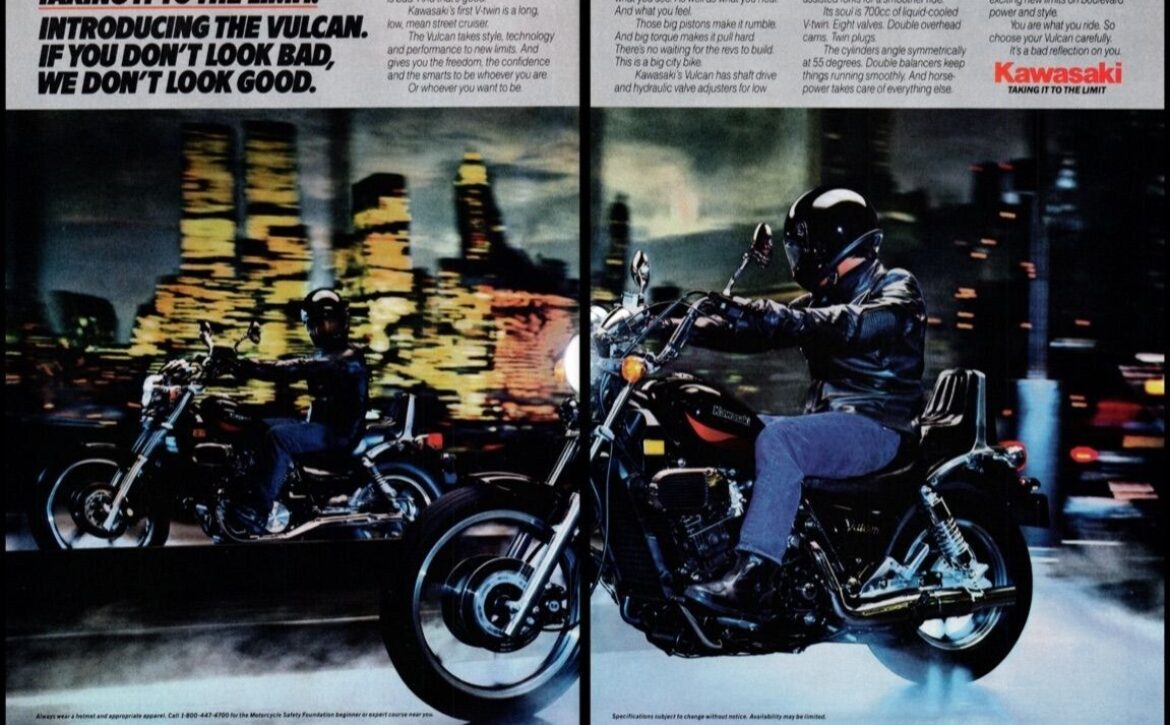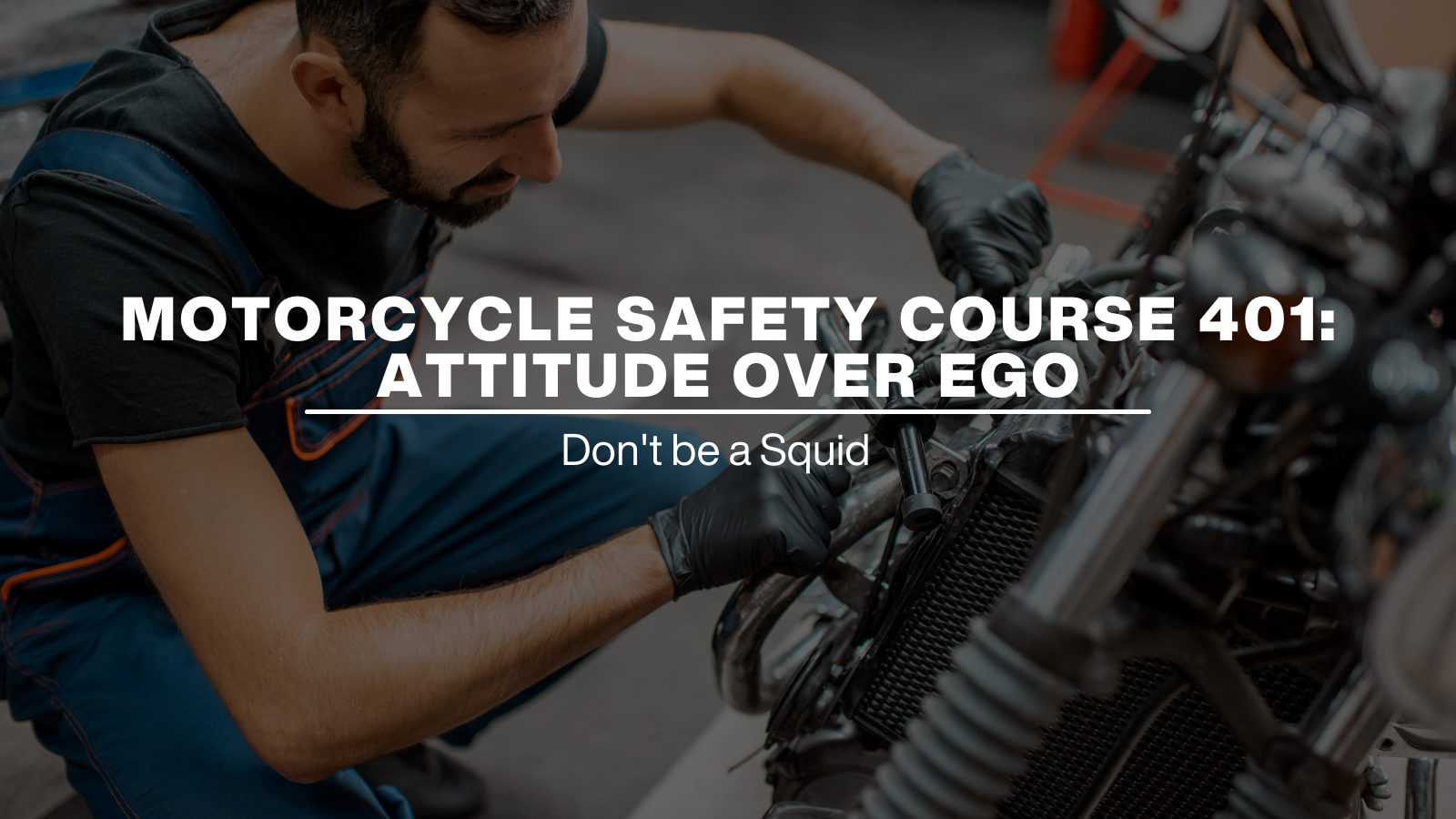
How to Become a Motorbike Maintenance Course Expert
Are you passionate about motorbikes and eager to understand their inner workings? Imagine cruising down the open road, not just as a rider but as someone who truly knows their machine inside and out.
Learning motorbike maintenance can transform your riding experience and save you money on repairs. But where do you start? You’ll discover how enrolling in a motorbike maintenance course can empower you with the skills to keep your bike in top shape.
We’ll guide you through the steps, share the benefits, and help you make an informed choice about the right course for you. Whether you’re a beginner or a seasoned rider, this guide will show you how mastering motorbike maintenance can enhance your freedom on the road and deepen your connection with your bike. Keep reading, and unlock the secrets to becoming more than just a rider—become a true motorbike aficionado.
Choosing The Right Course
Finding the perfect motorbike maintenance course involves considering your skill level and desired learning outcomes. Explore courses that offer hands-on training and cover essential topics like engine repair, brake systems, and electrical components. Prioritize programs with experienced instructors to gain practical knowledge and improve your motorbike maintenance skills.
Choosing the right motorbike maintenance course can make all the difference in your learning journey. You want a course that not only fits your schedule but also provides the best education possible. With many options available, it’s essential to weigh a few key factors before making your decision.
Accredited Programs
Start by checking if the course is accredited. Accreditation ensures the course meets certain educational standards. This can be crucial if you plan to pursue a career in motorbike maintenance. Accredited programs often provide certifications that are recognized in the industry. This can boost your resume and increase job prospects. Look for courses affiliated with well-known institutions or industry bodies.
Course Duration And Schedule
Consider how much time you can dedicate to the course. Courses can range from a few weeks to several months. Choose one that aligns with your availability. Think about the schedule as well. Some programs offer flexible online classes, while others might require in-person attendance. Decide what fits best with your current commitments.
Cost And Financial Aid Options
Cost is an important factor when selecting a course. Prices can vary widely between programs. Make sure to compare the tuition fees of different courses. Investigate if there are financial aid options available. Scholarships, grants, or payment plans can make a course more affordable. Don’t hesitate to ask the course provider about these possibilities. Choosing the right course is a step towards mastering motorbike maintenance. What are your priorities when selecting a course? Consider accreditation, duration, and cost to make an informed decision.
Essential Skills For Motorbike Maintenance
Maintaining a motorbike demands specific skills. These skills ensure smooth and safe rides. Aspiring mechanics must master several essential abilities. This skill set will help in fixing and maintaining bikes effectively. It also aids in diagnosing problems accurately.
Mechanical Aptitude
Understanding basic mechanics is crucial. This includes knowledge of how parts interact. A good grasp of engine operations is important. Familiarity with tools is necessary. Mechanics must know how to use them correctly. This ability saves time and prevents errors.
Problem-solving Skills
Mechanics often face unexpected issues. Finding solutions quickly is key. Analyzing symptoms helps identify problems. This skill involves logical thinking. It requires creativity in approach. Effective problem-solving leads to efficient repairs.
Attention To Detail
Small details matter in maintenance. Missing a single bolt can cause issues. Every part must be checked thoroughly. Precision ensures bike safety. Careful inspections prevent future problems. This skill enhances reliability and performance.
Hands-on Training
Hands-On Training is the backbone of any effective motorbike maintenance course. Imagine learning by actually doing—getting your hands dirty and understanding every component of the bike. This practical approach ensures you not only know the theory but can apply it confidently in real-world situations.
Workshop Experience
In the workshop, you’ll encounter various motorbike models and learn how they differ. You’ll work side by side with seasoned mechanics who share tips and tricks. This immersive environment enhances your learning, making each session an opportunity to solve real mechanical challenges.
Picture yourself tightening a bolt or changing a tire under the guidance of an expert. You’ll quickly see how theoretical knowledge transforms into practical skills. This experience builds your confidence, allowing you to tackle complex repairs independently.
Tool Familiarity
Knowing your tools is crucial in motorbike maintenance. You’ll learn to identify and use essential tools like wrenches, screwdrivers, and multimeters. Familiarity with these tools ensures efficiency and precision in your work.
Imagine the satisfaction of using a torque wrench correctly for the first time. You’ll appreciate the importance of each tool in maintaining bike safety and performance. This hands-on practice ensures you understand when and how to use each tool effectively.
Safety Practices
Safety is non-negotiable in motorbike maintenance. You’ll learn essential safety practices to protect yourself and others. Proper handling of tools and components minimizes risks and ensures a safe working environment.
Have you ever considered the impact of wearing protective gear? You’ll understand its importance firsthand during training. Safety practices become second nature, allowing you to focus on the task at hand without unnecessary worry.
Hands-On Training is more than just learning; it’s about building confidence and competence. Are you ready to take your motorbike skills to the next level? Embrace the challenge and see your abilities grow exponentially.

Advanced Techniques And Technologies
Exploring advanced techniques and technologies in motorbike maintenance can elevate your skills. Understanding these sophisticated systems ensures your motorbike runs optimally. Dive into the intricacies of electronic systems, fuel injection, and suspension tuning. These are critical areas for any aspiring motorbike technician.
Electronic Systems
Modern motorbikes feature complex electronic systems. These systems manage everything from ignition to lighting. Learning to diagnose electronic issues is crucial. Mastering these skills helps prevent electrical failures. Familiarize yourself with circuit diagrams. They are essential for troubleshooting. Invest time in understanding how sensors work. They play a vital role in motorbike performance.
Fuel Injection Systems
Fuel injection systems enhance efficiency and power. Unlike carburetors, they precisely control fuel delivery. Knowing their components is essential for maintenance. Learn about fuel pumps, injectors, and sensors. Each part requires specific attention. Understanding how they interact is key. It ensures optimal fuel efficiency and engine performance.
Suspension Tuning
Suspension tuning dramatically affects ride quality. It influences handling and comfort. Recognizing different types of suspension systems is crucial. Each has unique characteristics. Learn how to adjust settings for various terrains. Tweaking suspension can improve stability. It also enhances safety during rides. Regular checks ensure the system remains efficient.
Certifications And Credentials
Certifications and credentials are crucial in motorbike maintenance. They build trust and showcase skills. With the right qualifications, doors to exciting opportunities open. Employers often seek certified technicians. Let’s dive into the essential certifications and credentials for aspiring motorbike mechanics.
Industry-recognized Certifications
Industry-recognized certifications validate your expertise. They prove knowledge of motorbike systems and repairs. ASE certifications are popular in the automotive world. They are respected and widely acknowledged. Getting certified shows dedication and professionalism. It helps stand out in a competitive market.
Continuing Education
Learning never stops in motorbike maintenance. Continuing education is vital for growth. It ensures you stay updated with new technologies. Many schools offer advanced courses. Workshops and seminars are great too. They provide hands-on experience with the latest tools. This keeps skills sharp and relevant.
Professional Associations
Joining professional associations benefits technicians greatly. They connect you with industry leaders. Associations offer networking opportunities. Members often get discounts on courses. They also provide access to exclusive resources. Being part of a professional group boosts credibility. It shows a commitment to the field.

Building A Professional Network
Creating connections is essential for career growth in motorbike maintenance. A strong network opens doors to valuable opportunities. Learn from experts and gain insights. Networking is more than exchanging contact details. It’s about building relationships that last. Explore ways to expand your professional circle.
Connecting With Instructors
Instructors are a treasure trove of knowledge. Reach out to them for advice and guidance. Ask questions about the industry and its challenges. Show genuine interest in their experiences. Attend their classes regularly. Engage in conversations to build rapport. Seek feedback on your progress. A mentor can guide your career path.
Joining Online Forums
Online forums are rich in shared experiences. Join groups dedicated to motorbike maintenance. Participate in discussions and offer insights. Share your challenges and seek solutions. Learn from others and grow your understanding. Forums provide a sense of community. Connect with enthusiasts who share your passion.
Attending Industry Events
Industry events bring together experts and learners. Attend workshops and seminars to expand your knowledge. Meet professionals who can share valuable insights. Networking at events leads to meaningful connections. Discover new trends and technologies. Events are opportunities to learn and connect. Make the most of every interaction.
Career Opportunities
Exploring a career in motorbike maintenance opens diverse opportunities. The skills gained from a motorbike maintenance course can lead to exciting roles in various sectors. Whether you prefer working for a business or venturing on your own, the choices are plentiful. Let’s delve into some potential career paths.
Motorbike Repair Shops
Motorbike repair shops are ideal for honing your skills. These shops require technicians who can diagnose and fix motorbike issues efficiently. Working here allows you to tackle diverse problems, enhancing your expertise. The environment is fast-paced, offering daily challenges. You will learn from seasoned mechanics, broadening your knowledge. Repair shops often serve a loyal customer base. This helps you build relationships and trust with clients.
Dealerships
Motorbike dealerships offer a different setting. Here, technicians maintain and repair bikes before sale. You ensure bikes run smoothly, making them ready for eager buyers. Dealerships often have access to advanced tools and technologies. This setting provides a chance to work with the latest models. Being part of a dealership team means consistent work. You can develop a long-term career with growth potential. Dealerships often have structured training programs, aiding skill development.
Self-employment
Self-employment offers unmatched flexibility. You can set your own schedule and rates. Starting your own motorbike repair business allows you to be your own boss. Initially, you may work from home or a rented space. As your business grows, you might expand and hire staff. Marketing your skills and services is crucial. Building a strong reputation leads to more clients. Self-employment demands dedication but rewards independence.

Staying Updated With Industry Trends
Staying updated with industry trends enriches your motorbike maintenance skills. Explore online forums and attend workshops to learn the latest techniques. Engaging with experts and enthusiasts ensures you grasp new insights and tools effectively.
Staying updated with industry trends is crucial for anyone pursuing a career in motorbike maintenance. The world of motorbikes is fast-paced and constantly evolving, with new technologies and practices emerging regularly. Whether you’re just starting out or looking to sharpen your skills, keeping up with these changes can set you apart in the field.
Latest Tools And Equipment
The right tools can make all the difference in motorbike maintenance. Investing in the latest equipment not only improves efficiency but also enhances the quality of your work. A friend of mine, a seasoned mechanic, swears by his digital torque wrench for precision jobs. Have you considered what new tool might elevate your own work? Staying informed about new products is easier than ever. Subscribe to industry magazines or join online forums to hear about upcoming tools. This proactive approach ensures you’re always ready to tackle any repair with confidence.
Emerging Technologies
Motorbikes today are more than just engines and wheels; they’re becoming high-tech machines. From advanced braking systems to smart diagnostics, technology is transforming how we maintain these vehicles. A recent training course I attended introduced a diagnostic tool that communicates with bikes via Bluetooth. It was a game-changer for detecting issues before they become major problems. Are you familiar with the latest tech in motorbikes? Enrolling in workshops or webinars focused on emerging technologies can provide you with the knowledge needed to stay relevant. These opportunities not only expand your skills but can also lead to exciting career advancements.
Sustainability Practices
Sustainability is no longer just a buzzword; it’s a necessity in the motorbike industry. Consumers are increasingly interested in eco-friendly practices, and mechanics can play a vital role in this shift. Simple actions like recycling oil or using biodegradable cleaning products can make a significant impact. A colleague of mine started offering a “green service package” and saw a noticeable increase in customers. Have you thought about how sustainability could be integrated into your services? Implementing eco-friendly practices not only benefits the environment but can also attract a new customer base who values green initiatives. By keeping up with these industry trends, you not only enhance your skills but also increase your value in the job market. What steps will you take to ensure you’re not left behind in this ever-evolving field?
Frequently Asked Questions
What Skills Are Needed For Motorbike Maintenance?
To excel in motorbike maintenance, you need technical skills and mechanical knowledge. Familiarity with tools and diagnostic equipment is essential. Understanding engine systems, brakes, and electrical components is crucial. Attention to detail and problem-solving abilities are important. Hands-on experience and continuous learning will enhance your skills effectively.
How Long Is A Motorbike Maintenance Course?
A typical motorbike maintenance course can last from a few weeks to several months. The duration depends on the course’s depth and intensity. Short courses often cover basics, while longer programs provide in-depth training. Check the course curriculum to determine the time commitment required.
Is Prior Experience Necessary For The Course?
No prior experience is necessary for most motorbike maintenance courses. Many programs start with fundamental concepts and gradually progress. Courses are designed to accommodate beginners and those with some mechanical knowledge. However, having a passion for motorbikes and eagerness to learn is beneficial.
What Career Opportunities Follow After The Course?
Completing a motorbike maintenance course opens various career paths. You can work as a motorcycle mechanic, service technician, or in a repair shop. Opportunities also exist in dealerships, racing teams, and custom bike shops. With experience, you can start your own repair business.
Conclusion
Taking a motorbike maintenance course offers valuable skills for enthusiasts. It provides hands-on experience, making bike care easier and safer. With these skills, you can save money on repairs. Plus, you’ll gain confidence in handling your bike’s needs. Courses often cover various models, enhancing your versatility.
Finding a local course can be simple with online searches. Check community centers or local colleges. This journey can be rewarding and enjoyable. Embrace the challenge and grow your knowledge. Start learning today, and keep your motorbike running smoothly. Your bike will thank you for it!





